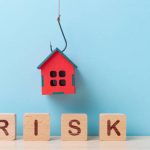Mortgage Loan Fraud Audits: Essential for Protecting Your Financial Future
In the world of mortgage lending and real estate investments, trust and transparency are paramount. As housing markets fluctuate, the risk of mortgage loan fraud increases, making it critical for financial institutions and borrowers to safeguard their interests. Mortgage loan fraud audits have become a vital tool in detecting and preventing fraudulent activities, ensuring that the integrity of the mortgage lending process remains intact. These audits not only identify potential fraud but also provide actionable insights that can help prevent costly mistakes and litigation.
This blog explores the importance of mortgage loan fraud audits, delving into their usefulness in identifying fraud, the role of securitization loan audits in protecting investments, and how fraud stoppers can help reduce exposure to financial losses. By understanding the value of these audits and how they can enhance financial security, lenders and borrowers alike can take proactive steps toward securing their financial future.
What is Mortgage Loan Fraud?
Mortgage loan fraud is a serious issue that can have devastating consequences for both lenders and borrowers. At its core, mortgage loan fraud occurs when individuals deliberately misrepresent or omit critical information to secure a mortgage loan under false pretenses. This fraud can take many forms, including income falsification, misrepresentation of property values, or using fictitious identities to secure loans. In some cases, lenders may unknowingly approve fraudulent loans, only to discover the deception after significant damage has been done.
The impact of mortgage loan fraud is far-reaching. For lenders, it results in financial losses, increased operational costs, and potential reputational damage. For borrowers, it can lead to unmanageable debt, foreclosure, and damaged credit scores. In both cases, the entire mortgage market is affected, as fraud undermines the trust and stability that are essential to the functioning of the industry.
The Role of Mortgage Loan Fraud Audits
Mortgage loan fraud audits are an essential tool in identifying and preventing fraudulent activities. These audits involve a comprehensive review of mortgage loan documents, transaction history, and borrower information to detect discrepancies or red flags that may indicate fraudulent behavior. By conducting a thorough audit, financial institutions can identify potential issues early in the process, allowing them to take corrective action before significant losses occur.
There are several key elements involved in mortgage loan fraud audits. One of the most critical steps is verifying the accuracy of borrower information. This includes cross-checking income statements, employment records, and other financial documents to ensure that the borrower has provided truthful and accurate information. Additionally, auditors will review property appraisals and transaction histories to confirm that the loan amount is appropriate for the property’s value.
In many cases, fraud auditors will also examine the borrower’s credit history and other financial records to ensure that they have the ability to repay the loan. If any discrepancies or suspicious activities are discovered, the auditor will flag them for further investigation. This proactive approach helps financial institutions identify potential fraud before it can cause significant damage.
The Importance of Securitization Loan Audits
Securitization loan audits play a critical role in protecting investments, especially when loans are bundled together and sold as mortgage-backed securities (MBS). In the securitization process, a group of mortgage loans is packaged into a security that can be sold to investors. This process allows lenders to offload the risk of individual loans and raise capital, but it also introduces new risks, particularly when it comes to the quality of the underlying loans.
Securitization loan audits focus on the integrity of these mortgage-backed securities. By reviewing the underlying loans in the security, auditors can identify potential issues that may affect the performance of the security. These audits often include a review of the loan origination process, loan documentation, and compliance with regulatory requirements. By ensuring that the underlying loans are legitimate and properly underwritten, securitization loan audits help protect investors and maintain the stability of the mortgage-backed securities market.
In the context of mortgage loan fraud, securitization loan audits are especially important because they provide an additional layer of scrutiny. If fraudulent loans are bundled into a mortgage-backed security, it can lead to significant losses for investors. By conducting thorough audits, financial institutions and investors can identify potential fraud and take steps to mitigate their exposure to risk.
Fraud Stoppers: How They Help Prevent Mortgage Loan Fraud
Fraud stoppers are tools, technologies, and processes designed to prevent and detect mortgage loan fraud before it occurs. These fraud prevention measures are essential for both lenders and borrowers, as they provide an extra layer of security throughout the loan origination process. Fraud stoppers can include everything from advanced software tools that flag suspicious activities to manual verification processes that ensure all borrower information is accurate.
One of the most common fraud stoppers is automated fraud detection software. These tools analyze mortgage loan applications and supporting documents to identify patterns or discrepancies that may indicate fraud. For example, the software can flag inconsistencies in income statements, address mismatches, or suspicious patterns in credit histories. By catching these issues early, lenders can take corrective action before processing the loan.
In addition to automated fraud detection, many lenders employ manual fraud detection methods. These can include thorough background checks, document verification, and direct communication with borrowers and third parties to confirm the accuracy of the information provided. These additional layers of scrutiny help ensure that fraudulent activity is identified before it can result in significant losses.
Fraud stoppers can also help protect borrowers from falling victim to mortgage fraud. By providing a more secure and transparent lending process, these tools reduce the likelihood of borrowers unknowingly engaging in fraudulent activities. This can help maintain the integrity of the mortgage market and ensure that borrowers are treated fairly throughout the loan process.
How Mortgage Loan Fraud Audits Benefit Lenders and Borrowers
Mortgage loan fraud audits provide significant benefits to both lenders and borrowers. For lenders, these audits help mitigate the risk of financial losses due to fraud, reduce operational costs associated with fraudulent loans, and protect their reputations. By identifying potential fraud early in the process, lenders can take corrective action before it becomes a costly problem. Additionally, conducting regular fraud audits helps lenders comply with industry regulations and maintain their standing with regulatory authorities.
For borrowers, mortgage loan fraud audits ensure that they are not exposed to fraudulent loans that could lead to financial distress. By verifying that the loan process is transparent and that the terms are fair, borrowers can have confidence in their mortgage loan. Furthermore, fraud audits help protect borrowers from predatory lending practices, ensuring that they are not subjected to excessive fees or inflated interest rates.
By preventing fraud, mortgage loan fraud audits ultimately contribute to the overall stability and integrity of the mortgage market. They help maintain trust between lenders, borrowers, and investors, ensuring that the system works as intended. This is essential for creating a healthy housing market and promoting long-term financial stability for all parties involved.
Conclusion: Protect Your Financial Future with Mortgage Loan Fraud Audits
Mortgage loan fraud is a serious concern that can have far-reaching consequences for both lenders and borrowers. By conducting mortgage loan fraud audits, financial institutions can identify potential issues early in the process, reducing the risk of financial losses and maintaining the integrity of the mortgage lending system. Securitization loan audits provide an additional layer of protection for investors, ensuring that mortgage-backed securities remain secure and reliable. Fraud stoppers play a critical role in preventing fraudulent activities, providing an added layer of security throughout the loan origination process.
For both lenders and borrowers, mortgage loan fraud audits are an essential tool for protecting financial interests. By proactively identifying and preventing fraud, these audits help ensure a stable and transparent mortgage market, reducing risks and fostering trust between all parties. Whether you’re a lender looking to safeguard your investments or a borrower seeking to protect your financial future, mortgage loan fraud audits provide the peace of mind you need to move forward with confidence.
Contact us today at (877)-399-2995 or visit Mortgage Audits Online to learn more. Secure your financial future with confidence!




